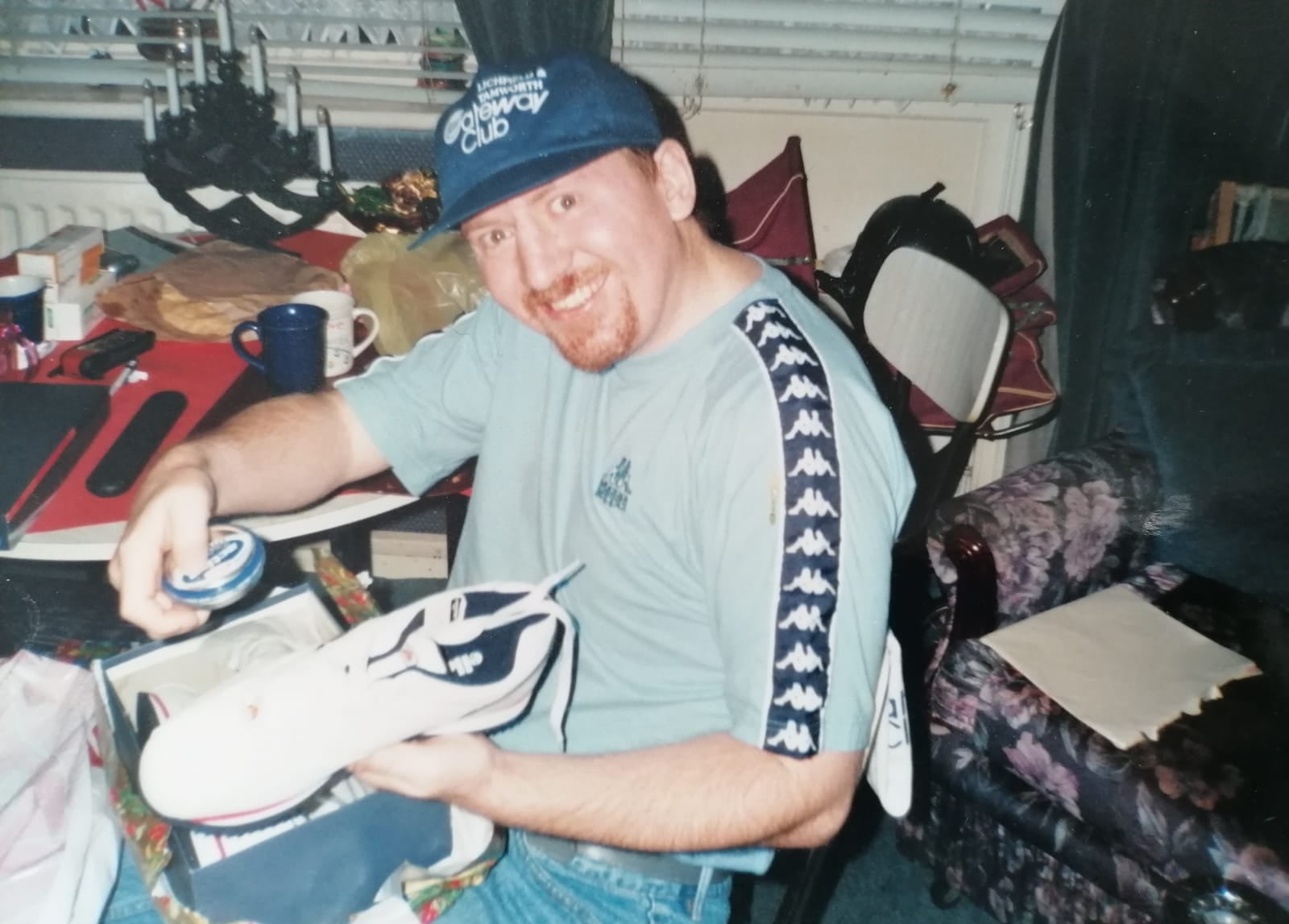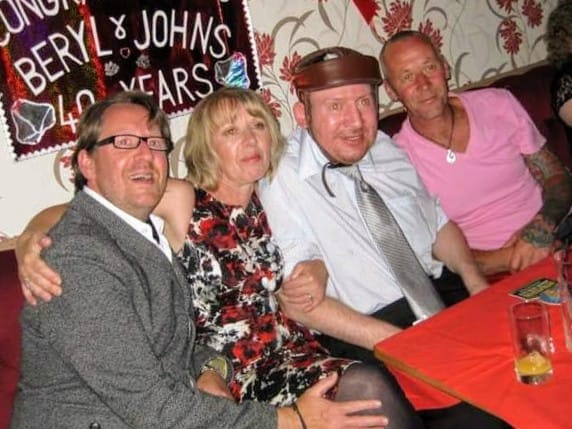‘I knew he was dying’: NHS report reveals decade of failings in care of vulnerable man
Exclusive: ‘I cannot describe the feeling of knowing that he was dying but nobody cared’, says Elaine the sister of Clive Treacey

Your support helps us to tell the story
From reproductive rights to climate change to Big Tech, The Independent is on the ground when the story is developing. Whether it's investigating the financials of Elon Musk's pro-Trump PAC or producing our latest documentary, 'The A Word', which shines a light on the American women fighting for reproductive rights, we know how important it is to parse out the facts from the messaging.
At such a critical moment in US history, we need reporters on the ground. Your donation allows us to keep sending journalists to speak to both sides of the story.
The Independent is trusted by Americans across the entire political spectrum. And unlike many other quality news outlets, we choose not to lock Americans out of our reporting and analysis with paywalls. We believe quality journalism should be available to everyone, paid for by those who can afford it.
Your support makes all the difference.A vulnerable man detained for 10 years was failed by a system that was meant to care for him, an independent NHS investigation has found.
Clive Treacey, a man who lived his life in the care of NHS and social care authorities, experienced an “unacceptably poor quality of life” and was not kept safe from harm before his death at just 47.
The findings of the independent review, The Independent and Sky News can reveal, have concluded Mr Treacey’s death was “potentially avoidable”.
His family are now pursuing a second inquest into his death after the review found a pathologist report and post-mortem did not follow guidelines – along with new CCTV footage from the night he died.
NHS England commissioned the review, under the Learning Disability Mortality Review Programme, in January 2020 – three years after Mr Treacey’s death and after his family was initially denied answers.
In an exclusive interview with The Independent, Mr Treacey’s sister, Elaine Clark said: “Two words sum up our loving son and brother – hope and family. Clive was our world, and we were his, he was the best of us all and he strived to keep magic, joy, fun.
“We have fought on because Clive deserved nothing less. He spent his entire life being incarcerated and so did we, his entire family. He didn’t matter. His voice didn’t matter. His human rights didn’t matter. His life choices didn’t matter. The system and its people believed he did not matter and nobody in it had enough ambition to do anything differently.
“Well Clive did matter. It matters what happened to him. It matters that it’s still happening to other people. And it matters that nothing seems to be changing we are one family but there are many others like us.”
The review into Mr Treacey’s treatment and death follows a series of shocking reports into the poor care of people with learning disabilities and comes a decade after the Winterborne View scandal – which exposed the horrific abuse of vulnerable people with an inpatient unit.
No life outside of hospital
Mr Treacey had learning disabilities and suffered from a complex form of epilepsy called Leonard Gastaut Syndrome. He was first admitted to an inpatient unit in 2007.
The review commented “clinicians overseeing Clive’s inpatient care did not see life outside of hospital as an option for Clive and failed to pursue a timely discharge for him”.
This “institutionalisation” moved him further away from the life he wanted and resulted in an “unnecessarily prolonged” detention in hospital, the review said.
Mr Treacy remained “incarcerated” in places that couldn’t meet his needs and before his death was finally placed in Cedar Vale Hospital where he was put “at higher risk of sudden death”.
NHS commissioners were criticised for placing Mr Treacey within units such as Cedar Vale where his “epilepsy care overall fell far short of acceptable practice for someone with complex intractable epilepsy”.
Throughout his life, the review found Mr Treacey suffered insufficient healthcare after professionals attributed his needs solely to his epilepsy.
‘I knew he was dying’

In the last months of his life Mr Treacey was an inpatient at Cedar Vale, now run by Cygnet Healthcare – but owned by Danshell Group at the time, who were responsible for the 2018 Whorlton Hall scandal.
The unit was formally owned by Castlebeck Care, which was responsible for the Winterbourne View scandal that saw people with learning disabilities subject to awful abuse.
The investigation into his care at Cedar Vale found staff were not trained in epilepsy care and the hospital did not provide access to a vital piece of breathing equipment he needed at night.
On the night of his death, the emergency response from staff was described as “limited, confused and chaotic” and may have reduced his chance of survival.
Ms Clarke described how she knew he was dying in the weeks and days leading up to his death.
She said, “we knew he was dying, and nobody listened to us, there was a very obvious deterioration in Clive’s ability to function. Clive, he kept telling everybody, he didn’t feel well.
“I cannot describe the feeling of knowing that he was dying. But nobody, cared, despite all of my attempts to seek life, treatment and raise concerns, and my fears with everybody. He and me were just dismissed and my parents were all just dismissed.”
In April 2017 a coroner concluded that Mr Treacey had died of “natural causes”.
However, the NHS report has found evidence that a flawed pathology and post-mortem report was used during the inquest which did not follow national guidelines from the Royal College of Pathologists and did not take into account Mr Treacey’s risk of “Sudden Unexpected Death in Epilepsy”.
According to the report, the attorney general wrote to the review’s chair, Beverly Dawkins, warning that coroners’ decisions can only be reviewed by the higher courts and that “coroners and juries cannot engage in public debate about their decisions”.
The review said failures uncovered in the pathologist report and failures in his epilepsy care may constitute the need to request a second inquest.
Sexual abuse allegations
During his early twenties, whilst in the care of an adult care home between 1989 and 1993, Mr Treacey was allegedly subjected to sexual abuse by a staff member.
Despite being moved from the home after the abuse was reported to the Cheshire Police, Staffordshire County Council and Cheshire East Council, the allegations were never properly followed up by either authority. The perpetrator allegedly then gained access to Mr Treacey at a second residential home.
Reviewers found the safeguarding response to the alleged sexual abuse failed to protect Mr Treacey and has recommended the local authorities conduct a review of all sexual abuse allegations received during the period.
Other key findings and recommendations
- Responses to concerns from the family and subsequent investigations, by NHS, council and police into his death were inadequate.
- Attempts to discharge Mr Treacey from hospital were “thwarted” by financial and systemic barriers from health and care commissioners.
- NHS England directors should set out concerns and engage with the chief coroner around work to prevent future deaths of people with a learning disability
- NHS England should review local ability for NHS to commission safe care for those with learning disabilities who have complex needs
- National Institute for Clinical Excellence should review guidelines for care of people with epilepsy and learning disabilities
- Health Education England and the medical royal colleges should seek training to highlight issues of diagnostic overshadowing, while hospitals, GPs and NHS England should raise awareness
A spokesperson for Cygnet Health Care said: “At the time of Mr Treacey’s death in 2017, Cedar Vale was not owned or operated by Cygnet Health Care. Although we did not take over the service until August 2018, more than a year and half later, we have worked collaboratively with all concerned to support this review and address any outstanding issues and areas for improvement surrounding his sad death, and we will continue to share lessons learned.”
A spokesperson for the NHS in the Midlands thanked Ms Dawkins for carrying out the review. They added the NHS was working with key partners to improve how people with learning disabilities are cared for and will carefully consider the recommendations.
Join our commenting forum
Join thought-provoking conversations, follow other Independent readers and see their replies
Comments